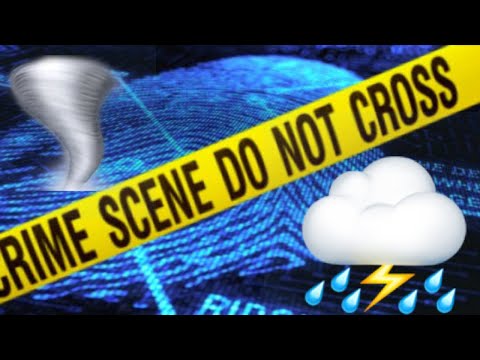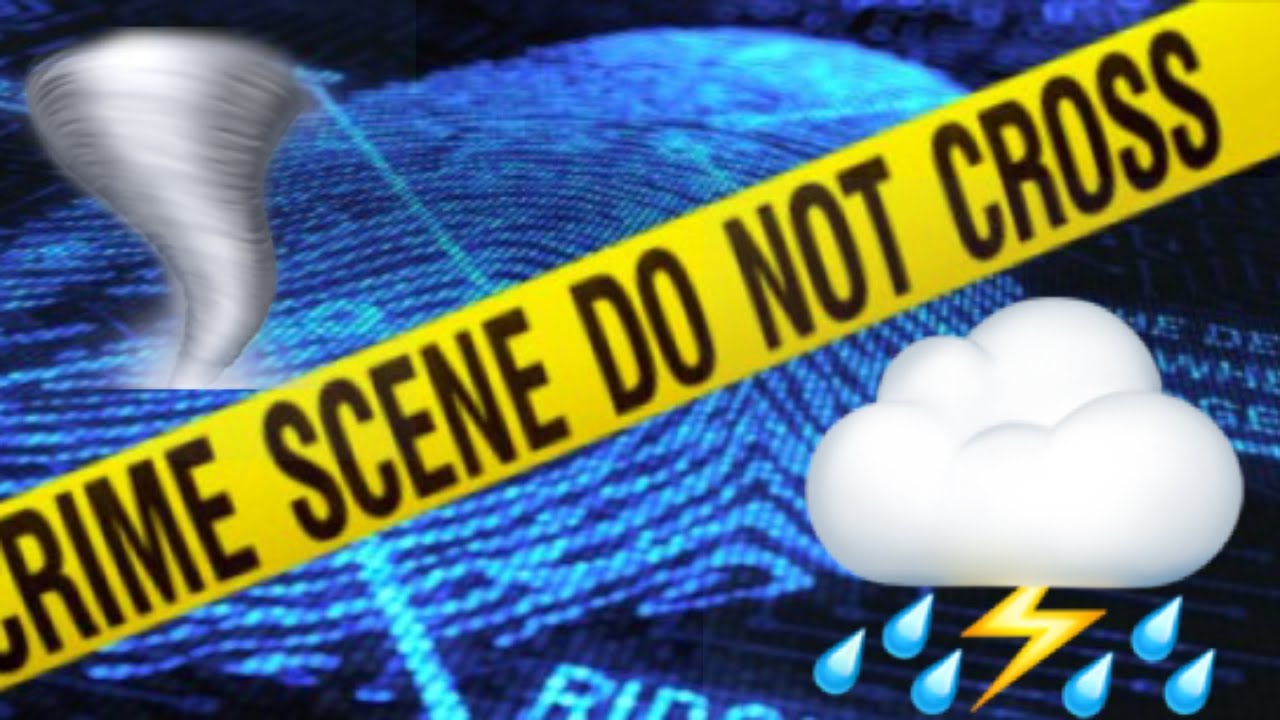Forensic meteorology is an intriguing field that combines the captivating realms of meteorology and criminal investigations. Imagine a world where weather patterns and atmospheric conditions play a pivotal role in solving crimes. This unique discipline involves using scientific methods and meteorological expertise to reconstruct past weather events, determining their potential influence on various legal cases. From analyzing weather data and studying patterns to providing expert testimony in courtrooms, forensic meteorologists are the unsung heroes behind the scenes, unraveling the mysteries surrounding weather-related incidents. Whether it’s a high-profile court case involving a natural disaster, a crime scene investigation affected by extreme weather conditions, or insurance claims related to weather-related incidents, forensic meteorology provides crucial insights. By meticulously examining historical weather records, satellite imagery, and radar data, these experts can unravel the stories hidden within the skies. They can determine if a storm was severe enough to cause damage, trace the origin of debris, or even ascertain if weather conditions played a role in accidents or crimes. The intersection of science and law becomes enthralling as forensic meteorologists apply their knowledge to help attorneys, law enforcement, and insurance agencies make informed decisions. By understanding the intricacies of weather events and their potential consequences, these professionals shed light on the truth behind the scenes. So, if you have ever been captivated by meteorology or intrigued by the investigative world, forensic meteorology offers a fascinating and unconventional career path where your understanding of the weather can help unravel perplexing mysteries.

Forensic Meteorology
| Aspect | Description |
|---|---|
| Definition | Forensic meteorology is a specialized field that applies meteorological knowledge and techniques to solve legal disputes and provide expert testimony in court cases. |
| Applications | Forensic meteorologists are involved in diverse cases, including weather-related accidents, environmental issues, insurance claims, and criminal investigations. |
| Expertise | These professionals possess a deep understanding of atmospheric science, climate patterns, severe weather phenomena, and the interpretation of weather data. |
| Data Analysis | Forensic meteorologists meticulously analyze weather records, satellite imagery, radar data, and other meteorological information to reconstruct past weather conditions relevant to a particular case. |
| Expert Testimony | They present their findings in courtrooms, providing objective and scientifically-backed explanations to aid in decision-making and dispute resolution. |
| Collaboration | Forensic meteorologists often collaborate with other experts, such as accident reconstruction specialists, hydrologists, and environmental scientists, to comprehensively investigate and analyze complex weather-related incidents. |
| Advancements | With the advancements in meteorological technology and the availability of vast weather databases, forensic meteorologists can now provide more accurate and detailed analyses, enhancing the reliability of their expert opinions. |
Unveiling the Science of Weather Sleuths
What is Forensic Meteorology?
Forensic meteorology is a specialized field that involves the application of meteorological knowledge and techniques to legal cases and investigations. It combines the science of meteorology with the legal system to provide crucial information and expert testimony.
The Role of a Forensic Meteorologist
Forensic meteorologists analyze weather data and provide their expertise in legal cases where weather conditions play a significant role. They may be called upon to investigate accidents, determine the cause of fires, evaluate storm damage, or assess the impact of weather conditions on crimes.
One of the primary responsibilities of a forensic meteorologist is to provide accurate and reliable weather information for use in court proceedings. This can involve the analysis of historical weather data, the interpretation of radar images and satellite imagery, and the use of computer models to predict weather conditions at specific times and locations.
Applications of Forensic Meteorology
Forensic meteorology has a wide range of applications, and its potential impact on legal cases is significant. Here are some examples of how forensic meteorology is used:
1. Accident Investigations
Forensic meteorologists can assist in accident investigations by analyzing weather conditions at the time of the incident. They can provide valuable insights into how weather conditions may have contributed to the accident, such as poor visibility, slippery roads, or strong winds.
2. Fire Investigations
In cases involving fires, forensic meteorologists can help determine the cause and spread of the fire by analyzing weather conditions and their impact on fire behavior. They can also assess whether natural weather phenomena, such as lightning strikes or strong winds, may have played a role in starting or spreading the fire.
3. Insurance Claims
Forensic meteorologists are often called upon to evaluate insurance claims related to weather events. They can assess the severity and duration of weather conditions, such as hailstorms or hurricanes, and determine the extent of damage caused by these events. This information is crucial for insurance companies to accurately assess claims and determine appropriate compensation.
4. Criminal Investigations
Weather conditions can play a significant role in criminal investigations. Forensic meteorologists can analyze weather data to determine if weather conditions, such as heavy rain or strong winds, may have affected the crime scene or altered evidence. They can also provide expert testimony on how weather conditions may have influenced the actions of individuals involved in criminal activities.
5. Environmental Litigation
In cases involving environmental disputes, forensic meteorologists can provide valuable insights into weather patterns and climate data. They can assess the impact of weather conditions on environmental factors, such as air quality or the spread of pollutants. This information can help determine liability and guide regulatory decisions.
The Importance of Forensic Meteorology
Forensic meteorology plays a crucial role in the legal system by providing objective and scientific analysis of weather conditions. It helps ensure that weather-related information used in legal cases is accurate, reliable, and unbiased. This can significantly impact the outcome of legal proceedings and the fair administration of justice.
By providing expert testimony and evidence, forensic meteorologists help lawyers, judges, and juries understand the complex relationship between weather conditions and legal cases. Their knowledge and expertise help bridge the gap between meteorology and the legal system, ensuring that weather-related issues are properly considered and understood.
The Future of Forensic Meteorology
As our understanding of weather patterns and technology continues to advance, the field of forensic meteorology is expected to grow. New tools and techniques, such as advanced computer models and remote sensing technologies, will enhance the capabilities of forensic meteorologists in analyzing and predicting weather conditions.
Moreover, the increasing impact of climate change on extreme weather events and environmental issues will likely lead to an increased demand for forensic meteorologists in future legal cases. Their expertise will be crucial in assessing the influence of climate conditions on various legal matters, from insurance claims to environmental disputes.
Conclusion
Forensic meteorology is a fascinating field that combines meteorology and the legal system. It provides valuable insights into the impact of weather conditions on legal cases, ensuring that weather-related information is accurately analyzed and understood. Forensic meteorologists play an essential role in accident investigations, fire investigations, insurance claims, criminal investigations, and environmental litigation. With the continued advancement of technology and our understanding of weather patterns, the field of forensic meteorology is poised for growth and increased relevance in the future.

